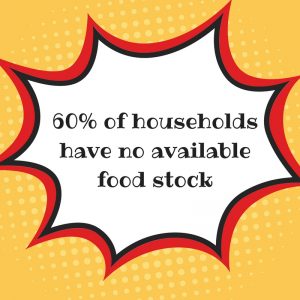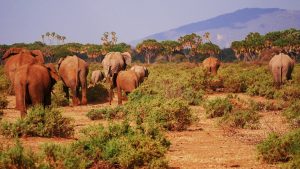“United Nations agencies estimate that 2.6 million people or half the population require humanitarian aid and that 60% of households have no available food stock” (Arieff, 2016). Thus the African governments are unable to combat the problem of poaching let alone terrorist organisations without fixing their economic problems first.

As U.N secretary general Ban Ki-moon states “if we do not give African governments the means to carry out an effective and sustainable counter-terrorism strategy there is every reason to fear the creation of that terrorist arc from Mauritania to Nigeria and beyond the Horn of Africa” (United Nations Security Council, 2013).
Many communities rely on tourism to sustain their economy and with poaching there arises economic disadvantages. The government has made attempts to enact laws to prohibit poaching. In 2011 a man was fined for spearing an elephant. A fine which was not even worth the price of one cow. A bill was then passed and the man was charged seven years in prison. Although this seems like a drastic change the “sophisticated poachers who are more likely to be connected to large criminal groups…stopping them will take an even bigger effort” because “their insurance, their connections, their income is so large” (Bergenas, 2015).

The battle of power between terrorist organisations and governments is clearly shown through the occurrence in Uganda. LRA attacks were intermittently reported in multiple areas but Uganda troops “for political and security reasons” were “less able to operate” leaving “certain implications to counter the group” (Arieff, 2014).
